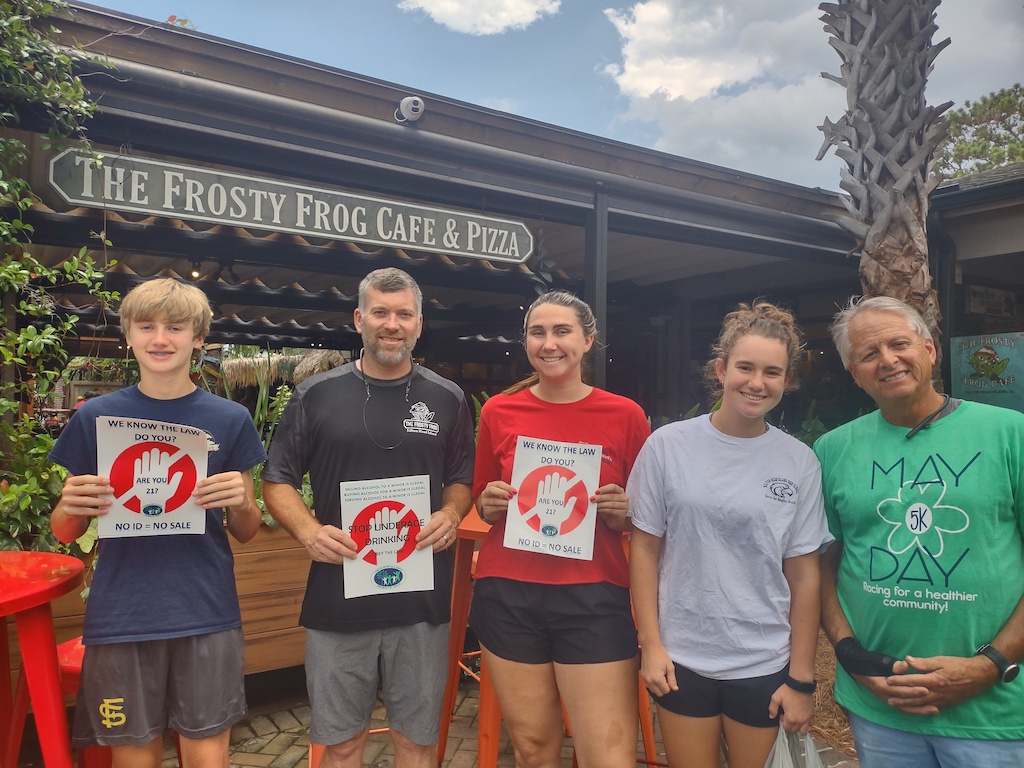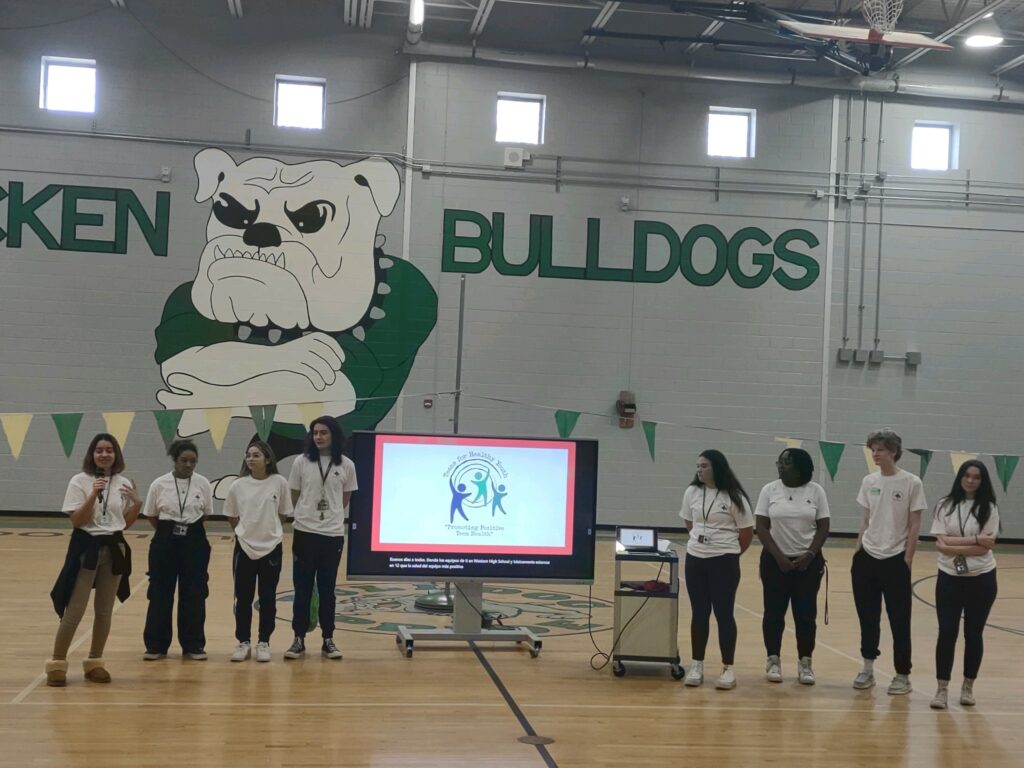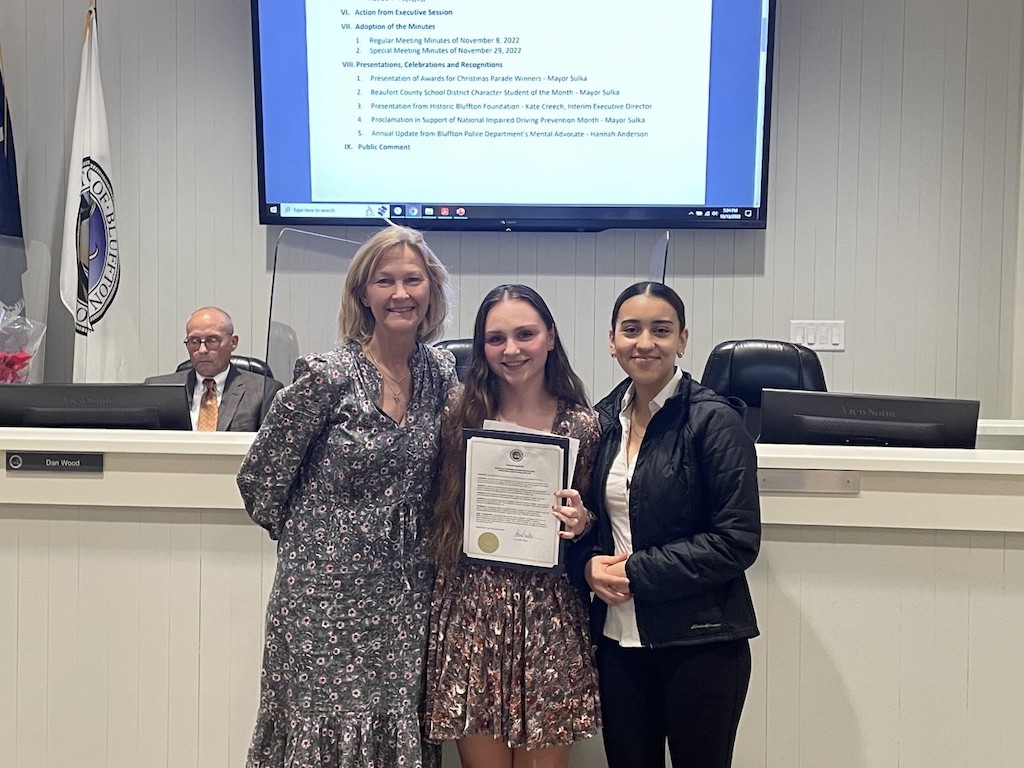Did you know that drunk driving is the number one cause of death on our roadways and that one-third of drunk driving deaths happen to 16-20 year olds? While that’s certainly a sobering thought, statistics are rarely compelling until they hit home.
In December 2011, the numbers came to town when a 17-year-old local high school student, who reportedly had been drinking, died after crashing her car into a tree on Hilton Head Island, leaving her four teenage passengers with serious injuries, one permanently paralyzed.
In response to this and several other alcohol-related tragedies involving area youth, a group of local educators and concerned citizens got together to discuss what might be done to help save others from the heartbreaking consequences of substance use.
In February 2012, LowCountry Alliance for Healthy Youth (LCAHY) was born. What started as a grassroots effort to address a local concern grew into a firmly established, federally funded coalition representing all sectors of the community including schools, parents/parent organizations, law enforcement, government, faith-based organizations, civic organizations, youth/youth organizations, social service agencies, media, health care professionals, and businesses. Their purpose is to work together towards a common goal to promote teen wellness, which means addressing mental health and educating to prevent the use/misuse of substances including alcohol, tobacco, marijuana, e-cigarettes, opioids, and prescription medications.
The teen factor
Simply being a teenager is risky business. It’s a time when bodies and brains are still under construction—a time when boundaries are pushed, limits are tested, and peer pressure is at an all-time high. Teenagers are more likely than adults to make risky decisions because areas of the brain that handle impulse control and planning don’t completely mature until about age 25.
“Half of all lifetime cases of mental illness and substance use begin by age 14 and three-fourths by age 24,” said Dr. Loretta Novince, a developmental psychologist and LCAHY consultant. “Substance use is a developmental disorder, which begins during the childhood and adolescent years. The use of alcohol and other drugs has the potential for impairment to the developing adolescent brain, leading to risk-taking behaviors, learning and memory problems, mental health issues, and addiction.”
While risk taking is a normal teenage phenomenon, this doesn’t mean all teens are destined for trouble. What it does mean is that communities must work together to help promote positive choices.
A collaborative effort
Beloved local businessman and LCAHY board member, David Martin, is doing his part to support the alliance’s goals by taking the lead in the business sector. Driven by his personal experience, he shares his story.
“I come from a ground of recovery. That’s where my passion comes from, because in my teens was where I got in trouble,” Martin said. “I went to rehab September 3, 1987. I got clean and never did relapse, but I became a big advocate for AA.”

David Martin, LCAHY Board Member and owner of Piggly Wiggly, proudly posts signage at businesses to discourage providing alcohol to minors with assistance from Teens for Healthy Youth members. Frosty Frog Restaurant and Bar and other restaurants at Coligny Plaza agree to post LCAHY’s signage to discourage individuals from providing alcohol to underage youth.
Today, Martin, owner of Hilton Head Island’s Piggly Wiggly grocery store and recent winner of the inaugural Joan and Wade Webster Community Impact Award, uses his knowledge and experience to help educate area youngsters. “I didn’t arrive here on a white horse,” he said. “I don’t go at it and say, ‘You should not.’ I just tell them what happened to me and how lucky I am. A large percentage of people don’t get sober, and it’s a battle most people don’t understand. I’m not a finger pointer, by any means. But if you get in trouble, there’s help.”
Martin has also championed “We I.D. the LCAHY Way,” a training program encouraging business owners to do their part to enforce I.D. laws. “Five or six years ago, we started seeing a drop in tobacco use, and we were part of that. But of course, now the vape shops are here,” he said. “That’s an area we’ve been focusing on, politely asking them to make sure they’re checking I.D.s.”
Perhaps one of the most exciting parts of LCAHY’s drive to educate, Martin said, is the Teens for Healthy Youth (THY) initiative, whereby young people are taking the lead to influence their peers in a positive way.
“It takes a lot of courage for a 16 year old to stand in front of other students and say, ‘Here are the dangers of marijuana,’” Martin said. “Some people might think it’s just weed, but if you look at the data, it can have serious effects on the teenage brain.”
Additionally, the amount of THC in marijuana has steadily climbed. Today’s marijuana has three times the concentration of THC compared to 25 years ago, increasing the impact on the brain. Plus, it can also be laced with other dangerous substances, Martin pointed out. “Some people like to say God gave it to us. Well, God gave us hemlock too, which will kill you,” he said.
According to Bluffton High School teacher Laura Pirkey, LCAHY’s youth coordinator and Teens for Healthy Youth advisor at Bluffton High School, young people are educating in various ways, making presentations in the schools, posting on social media, and getting out in the community to promote signage and spread the message any way they can. “They are a very energetic and great group of kids,” she said. “People would be surprised how many kids are really passionate about living healthy lives. Teenagers get bad raps sometimes, but there are a lot of kids making good choices.”
An important focus of THY is helping teens learn to manage stress, which is also a risk factor in substance use, according to Pirkey. “A lot of people don’t realize that the onset of mental illness is usually adolescence and the same thing for substance abuse. So, it’s a critical time, and it’s very beneficial for teens to be hearing the message from their peers and from all sectors of the community.”

Teens for Healthy Youth (THY) members educate 7th graders about total health & wellness through the Prevention Plus Wellness Program.
“Communication is key.” Novince added. “Talking to our youth early and often about the health (physical and mental), safety, social, and legal consequences of substance use will make it more likely that our children and teens will make healthy choices supported by family, peers, and the community.”
If you are struggling to find ways to open the conversation or to get through to your teens, multiple resources are available through LACHY’s website under the Resources tab and “Talk. They Hear You,” a prevention campaign of the U.S. Substance Abuse and Mental Health Services Administration (SAMHSA), promoted by LCAHY locally.
Many teens simply aren’t aware of the consequences of substance use or how it affects the brain. Setting examples at home and talking with them could be the difference between life and death.
May is Mental Health and Substance Use Prevention Awareness Month. Join LCAHY in raising awareness about the importance of child and adolescent mental health and substance use prevention
LCAHY is a recipient of the Drug-Free Communities (DFC) Support Program grant awarded by the White House Office of National Drug Control Policy (ONDCP) and administered by the Centers for Disease Control and Prevention (CDC). The Community Foundation of the Lowcountry serves as the organization’s fiscal agent. Learn more at lcahealthyyouth.com.
How Can You Be Part of the Solution?
- Become a board member, affiliate member, or community partner
- Assist with/promote LCAHY’s community initiatives & activities
- Support the youth initiative, Teens for Healthy Youth
- Donate online
To get involved, visit lcahealthyyouth.com or contact the LCAHY office at lcalliance4healthyyouth@gmail.com. Teens, parents, or teachers who are interested in Teens for Healthy Youth are invited to contact Laura Pirkey at (843) 384-3351 for more information.



